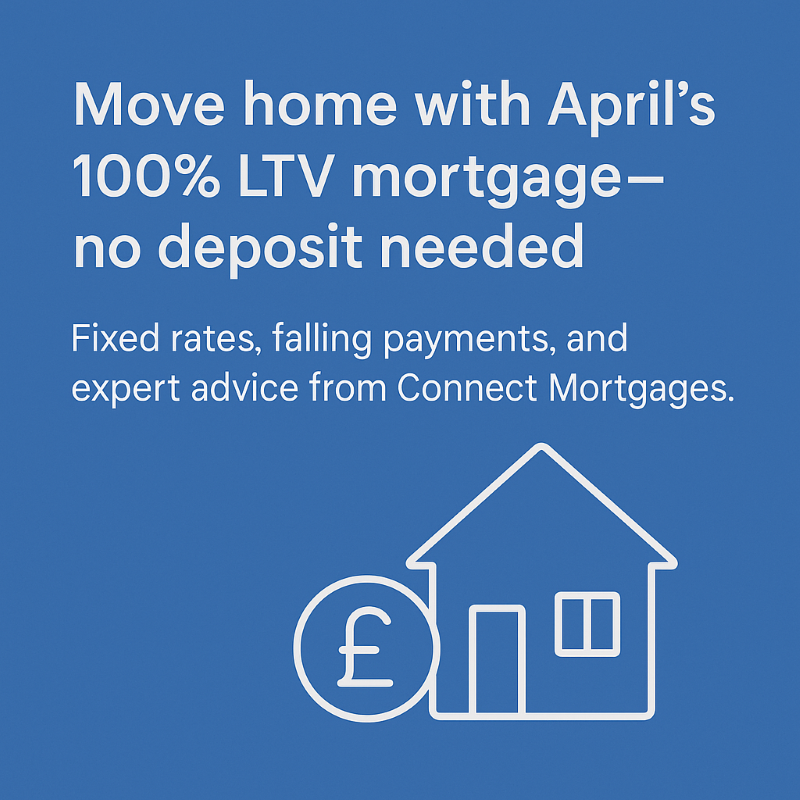The mortgage process may appear complex and overwhelming, but this should not cause immediate concern. After the excitement of purchasing your first property, a thought might arise, ‘Can I even get a mortgage?’ Before finding an answer, your mind may focus on the many mortgage terms that seem designed for experts. Feeling uncertain about these terms is completely normal.
There is no need to worry if you are unsure about mortgages. We specialise in this area and are here to help. This guide explains key mortgage terms to increase your confidence when completing paperwork and making important decisions.
Once you understand the basics, you can explore our other guide, ‘How Can I Get A Mortgage?‘ to find answers to your initial question.
Our 1 A-Z Mortgage jargon translations go as follows;
A
Additional borrowing:
The overall mortgage advance increases when you borrow additional funds. A reason for additional borrowing could be for home improvements, a deposit for a buy-to-let mortgage or an extravagant purchase.
Annual Percentage Rate of Charge (APRC):
This projects the total mortgage cost, including fees, over the entire mortgage term.
B
Bankruptcy Search:
The appointed conveyancer or solicitor representing the lender and the applicant will check if the seller or buyer is, or has previously been made, bankrupt.
Balance sheet:
A statement of a business or other organisation’s assets, liabilities, and capital at a particular time detailing the balance of income and expenditure over the preceding period.
Base rate:
The Bank of England sets the base rate and determines UK banks’ interest rates on savings and borrowing money.
Booking fee:
A fee charged on some mortgages to secure a particular mortgage deal.
C
Capital repayment:
Concerns about the initial funds you borrowed: capital repayment is your monthly payment to your lender. This includes the interest the lender adds to the loan over the repayment term.
Completion:
Refers to when a property is sold and purchased, and the buyer’s solicitor or conveyancer pays the purchase amount to the seller’s solicitor or conveyancer. Once completion has occurred, the buyer can collect the keys to the property.
Completion fee:
It covers the cost of electronically transferring your mortgage funds to you or your solicitor.
Consent to let (CTL):
This allows you to let your residential property if you have a short-term letting need (for example, if you move outside the UK for a while). You need to apply to your lender for their consent to do this.
Contract:
A written agreement between the seller and buyer to sell and purchase a property. The contract details the terms & conditions of the sale and purchase. However, this is not legally binding until the exchange of contracts.
Conveyancer:
A conveyancer is a licensed professional or company representing you when buying a property. They manage legal documents, report to the lender, and request funds to prepare for completion. They also work with the land registry to transfer legal ownership of the property.
D
The decision in principle (DIP)
(also known as an agreement in principle) indicates how much you could borrow from a mortgage provider. It’s based on your income and expenditure and a soft credit check. It shows an estate agent that you’re in an excellent position to buy a property.
Deposit:
The amount of money you pay towards your property. The deposit will be a percentage of the cost of the property.
Drawn-down:
This is when the mortgage funds have been sent to your solicitor, and the mortgage term has started.
E
Early Repayment Penalty:
An Early Repayment Charge or ERC). It’s a fee you must make to the lender if you decide to pay off the mortgage before the end period of the product terms.
Estimated property value:
This is the purchase price or the market value of the property you want.
Exchange of contracts:
The exchange of contracts is when both parties swap and sign the contracts. This is where the buyer will be asked to put down the deposit. This is a crucial stage of buying a home. Once the contracts are signed, you will be legally bound to buy the property.
Exit fee:
You may have to pay this when you fully repay your mortgage. Not all lenders charge an exit fee.
F
Fee Saver:
The fee saver means borrowers do not have to pay a booking, standard valuation, or completion fee.
Financial crime:
This term means money laundering, terrorist financing, bribery, corruption, tax evasion, fraud, evasion of economic or trade sanctions or any acts or attempts to break any laws relating to these matters.
First legal charge (England, Wales and Northern Ireland):
When using a mortgage to cover the costs of a property purchase, the lender takes a legal ‘charge’ against the property. Since this would be the first legal charge attached to the property, it’s a first-charge mortgage.
First-ranking standard security (Scotland):
This legal document in Scotland allows the lender to take control of the property if the borrowers don’t meet your obligations under the loan.
Fixed-rate mortgage:
A fixed-rate mortgage is where the interest rate stays the same for the duration of your deal, irrespective of whether the Bank of England announces a rate increase or decrease.
Fixed until:
The date on which a fixed-rate mortgage ends.
Full reinstatement value
This is the total cost of rebuilding the property for insurance purposes.
H
HM Land Registry:
I
Illustrative:
This means it’s just an example.
Interest calculated daily:
The interest charged on your outstanding mortgage balance is calculated daily rather than at the end of each week, month or year.
Interest-only mortgage:
With this type of mortgage, you will only pay the borrowed interest. At the end of the mortgage term, you’ll be responsible for repaying the original amount borrowed.
Interest rate type:
The interest you pay on your mortgage may be variable or fixed at a set rate for a period.
L
Legal charge (England, Wales and Northern Ireland):
This is a legal document signed by the borrower registered against the property at the Land Registry and used to secure the mortgage against that property.
Letter of consent:
A letter of consent and postponement by deed applies to individuals who meet specific criteria. These include anyone aged 17 or older who resides in the property but is not listed on the mortgage application. This group can include lodgers and au pairs.
It also applies to those with a financial interest or occupancy right in the property. These individuals do not own, will not own, or are not borrowing against the property at the time of application. This may include cases where a declaration of trust protects a family gift.
Full-time students who live away during term time but consider the property their main residence at the time of application are also covered.
By signing the consent letter, individuals agree that the lender can request them to leave the property if it must be sold to repay the mortgage.
Loan to Value (LTV):
This represents the percentage of the value of the property you want to borrow. For example, a £300,000 property with a £280,000 mortgage = an 80% LTV.
Local searches:
are checks made by your solicitor or conveyancer to the local authority. They check on property deeds, access rights, planning permission and drainage.
LPA:
Means the Law of Property Act 1925 (England and Wales only).
Lump sum payment:
This is a one-off payment to reduce the outstanding balance on your mortgage.
M
Maximum LTV:
This amount a lender is prepared to lend depends on the borrower’s situation, the property, the loan they choose and the amount borrowed.
Monthly payment:
This is the amount the borrower must pay the lender each month.
Mortgage debt:
The amount of money the borrower owes the lender on the mortgage.
Mortgage deed:
A legally binding document confirming that you and the lender have agreed to proceed with your mortgage offer, using the property as security.
Mortgage illustration:
This shows you all the rates and fees for a mortgage. Lenders will set this out in the same format for all their mortgages, so it’s easy to compare.
Mortgage term:
(sometimes just called ‘term’) is the time on your mortgage – in other words, the period your mortgage lender gives you to repay the borrowed money. A typical mortgage term is 25 years.
Mortgage offer:
This is the formal document issued by the lender to the borrower to confirm they’re happy to lend the agreed mortgage amount subject to its terms and conditions.
N
Negative equity:
It is when the total amount you owe on a mortgage and/or other loans secured on your home is higher than the property’s value. For example, if property prices fall, you could owe more than your home is worth.
No onward chain:
‘no chain’ or ‘chain free’. It means the person selling a property doesn’t need to raise funds from the sale to move, meaning there is no onward chain.
New-build property:
A new-build property is defined as follows:
A building that has been built in the last 24 months. This includes property bought directly from a builder or developer.
A property that has yet to be occupied for the first time.
A house or flat is created by converting an existing building into separate self-contained properties that have not been previously occupied in their present form.
O
Outstanding balance:
The outstanding amount owed on your existing mortgage.
Overpayment:
An overpayment is any additional payment over your regular monthly mortgage payment. Overpayments can be either a one-off lump sum or a regular yearly overpayment.
P
Payment day:
This is the month the lender receives the mortgage payment from your nominated account. When this date isn’t a business day, the mortgage payment will be made the next day.
Personal data:
This information can be used to identify an individual.
PHTSA:
This means the Private Housing (Tenancies) (Scotland) Act 2016.
Porting;
is when you move your mortgage from one property to another using the same lender.
Product period:
Means when an interest rate will apply to your mortgage.
Property chain:
When buying a property, there can be a ‘property chain’, including you (the buyer), the seller, their buyer, and so on. Being a first-time buyer shortens the property chain as you have no onward chain.
R
Remortgage:
You remortgage when you switch your existing mortgage to a new deal with the same lender or a different lender.
Residential mortgage:
This means a mortgage on a residential property rather than one for business.
Right of withdrawal:
This is a right, but you may have to cancel your mortgage application or another contract with us in some circumstances.
S
Securitisation
generally means transferring mortgages to an investor so financial institutions can release funds to lend more money.
Security document:
This legal document secures the mortgage debt over your property. This is the first legal charge (England, Wales or Northern Ireland) or first-ranking standard security (Scotland).
Security:
When you sign the mortgage offer, you agree to give the lender a right over your property as security. If you don’t keep up with the mortgage repayments, the lender reserves the right to repossess your property and sell it to recover the debt owed.
Soft credit check:
This type of background check can be run without your permission. Unlike a ‘hard’ credit check, it doesn’t affect your credit score or any credit applications you might make in the future.
Solicitor:
Like a conveyancer, a solicitor manages the legal aspects of purchasing a property, including the contracts, searches, transferring funds and providing legal advice.
Stamp Duty Land Tax (SDLT):
It is a tax payable by the buyer on purchasing a property over a specific price. SDLT applies in England and Northern Ireland. The amount payable depends on other matters, too, including whether the property is to be a main home and whether it is freehold or leasehold.
In Wales, buyers of property over a specific price are charged a Land Transaction Tax (LTT), and in Scotland, buyers of property over a particular price are charged a Land and Buildings Transaction Tax (LBTT).
The amount of SDLT, LTT and LBTT applies to properties over a specific value. The amount you pay depends on when you bought the property and how much you paid for it. For more information on any of the above, it is worth visiting the following:
Land and Building Transaction Tax
Standard conditions:
As amended, the standard conditions in Schedule 3 to the Conveyancing and Feudal Reform (Scotland) Act 1970.
Standard Valuation:
This is a survey of a property to confirm its value. It doesn’t advise on any structural problems or repairs that may add to your costs. This is done for the lender’s benefit only.
Standard variable rate (SVR):
A standard variable rate (SVR) is the interest rate charged once an initial deal period on a fixed or tracker rate mortgage ends.
Switching:
It is when you move to a new mortgage rate with the same lender. You usually do this when your current fixed or term tracker rate is coming to an end. If you choose to do nothing when your current rates end, you’ll typically move on to your lender’s SVR.
T
Tariff:
This document shows a lender’s mortgage fees and charges.
Tax authorities:
This refers to the UK or any foreign tax, revenue, or monetary authorities (for example, HMRC).
Tax information
means the documentation or information about a person’s tax status, including yours.
Term:
The period within which the mortgage debt must be repaid.
Title search:
This process confirms a property’s legal ownership through public records.
Tracker mortgage:
This type of mortgage where the repayments change in line with the Bank of England base rate so that they can go up and down.
Transfer deed:
This legal document finalises the sale of a property and transfers legal ownership from the seller to the buyer.
U
Underwriting:
This is the point in a mortgage application where all the information you have provided is reviewed, and a decision is made on whether you can borrow the requested money.
Understanding the mortgage jargon is vital for anyone planning to buy a property. Becoming familiar with some of the key terms can help you make an informed decision when it comes to taking out a mortgage. Be sure to talk to your lender or adviser if there’s anything you don’t understand- they will be able to explain everything in detail.
Thank you for reading our “1 Elite A-Z Mortgage Jargon Made Simple.” Stay “Connect“-ed for more updates soon!






